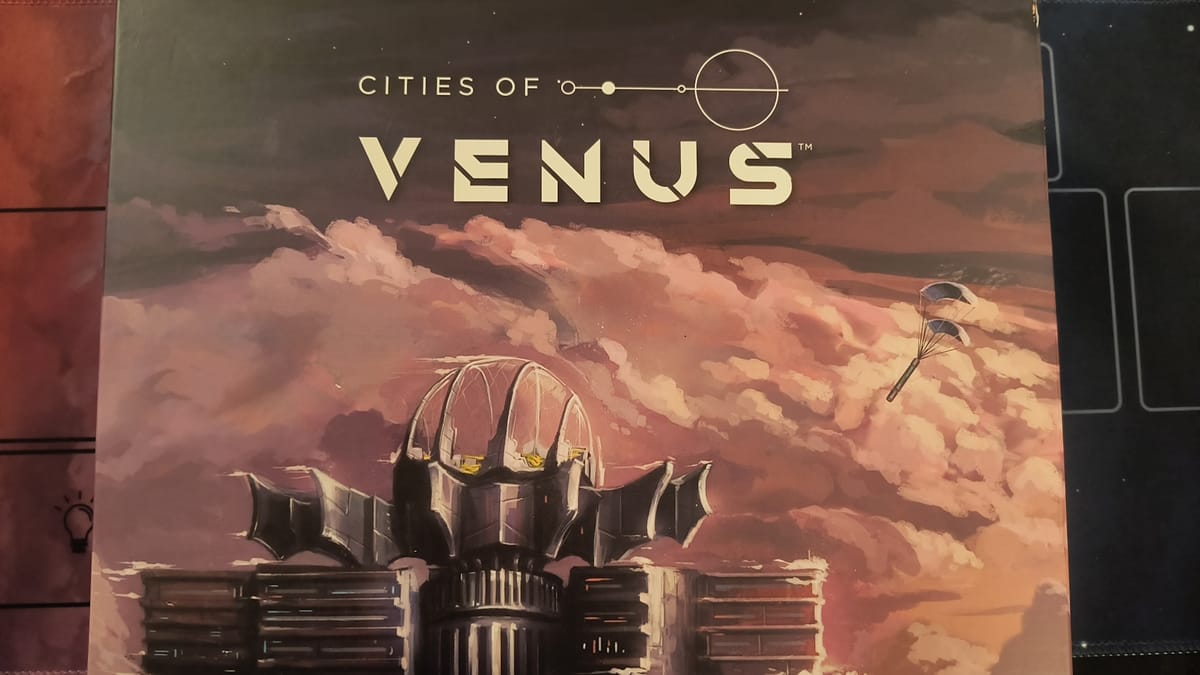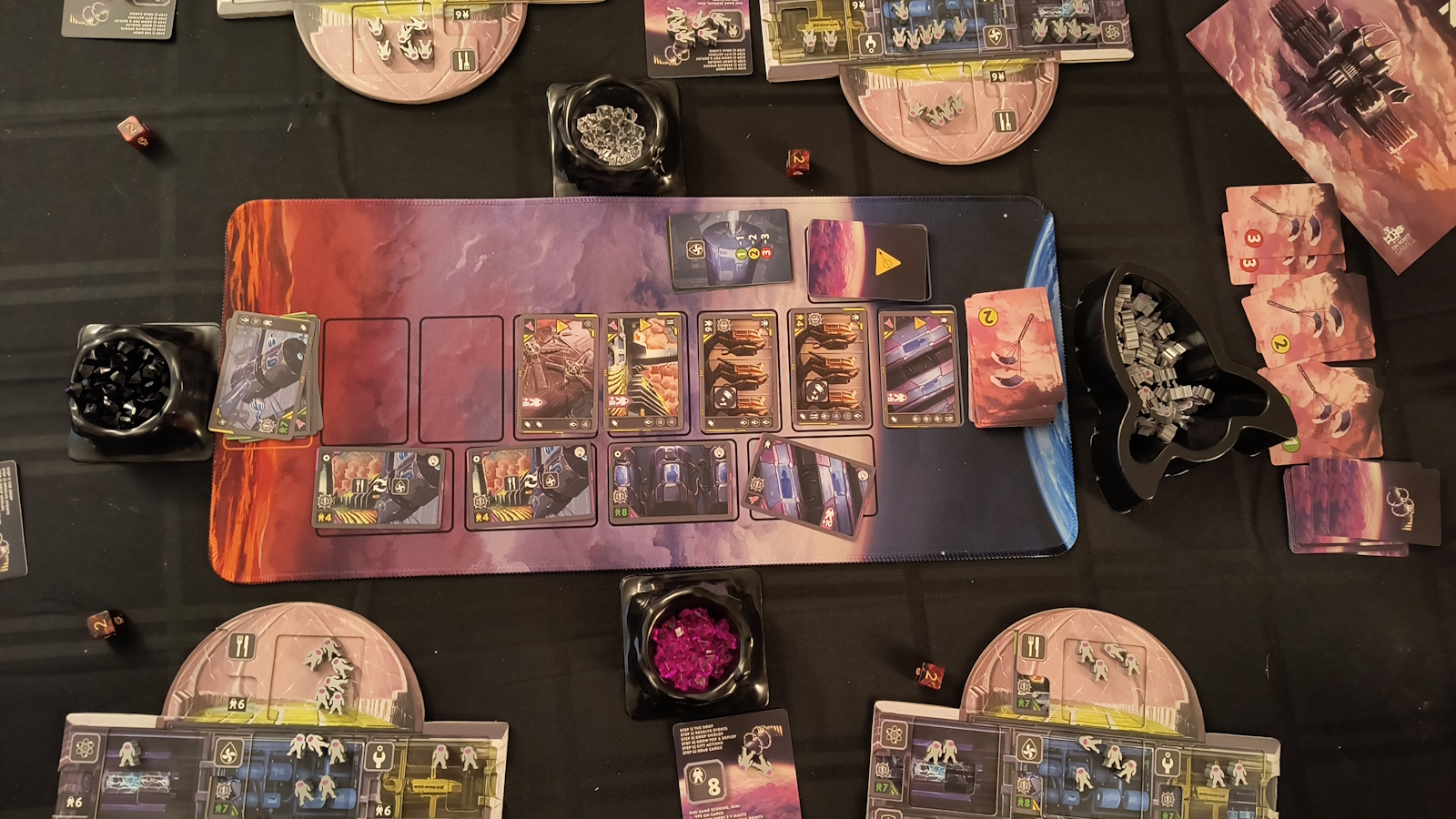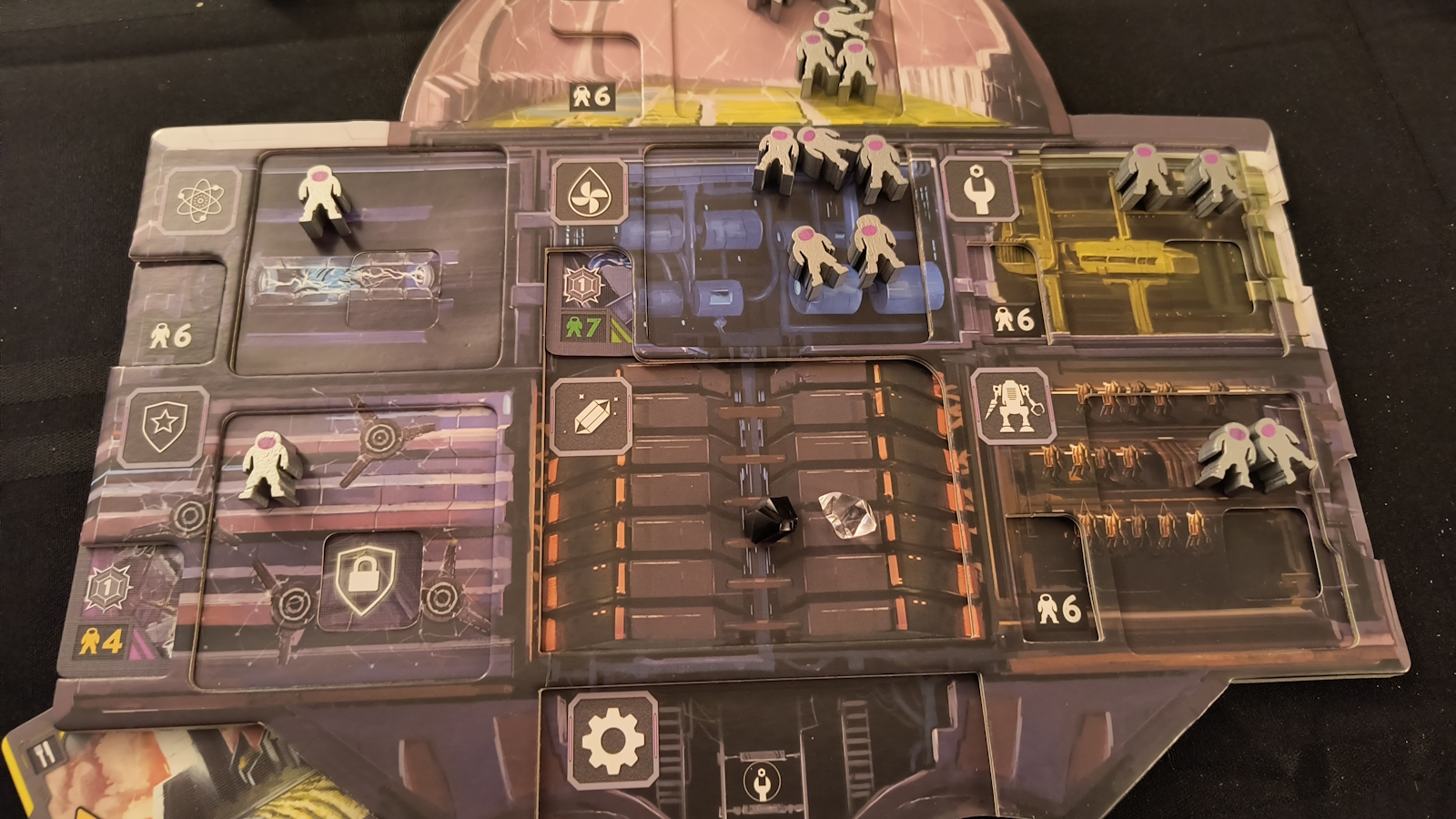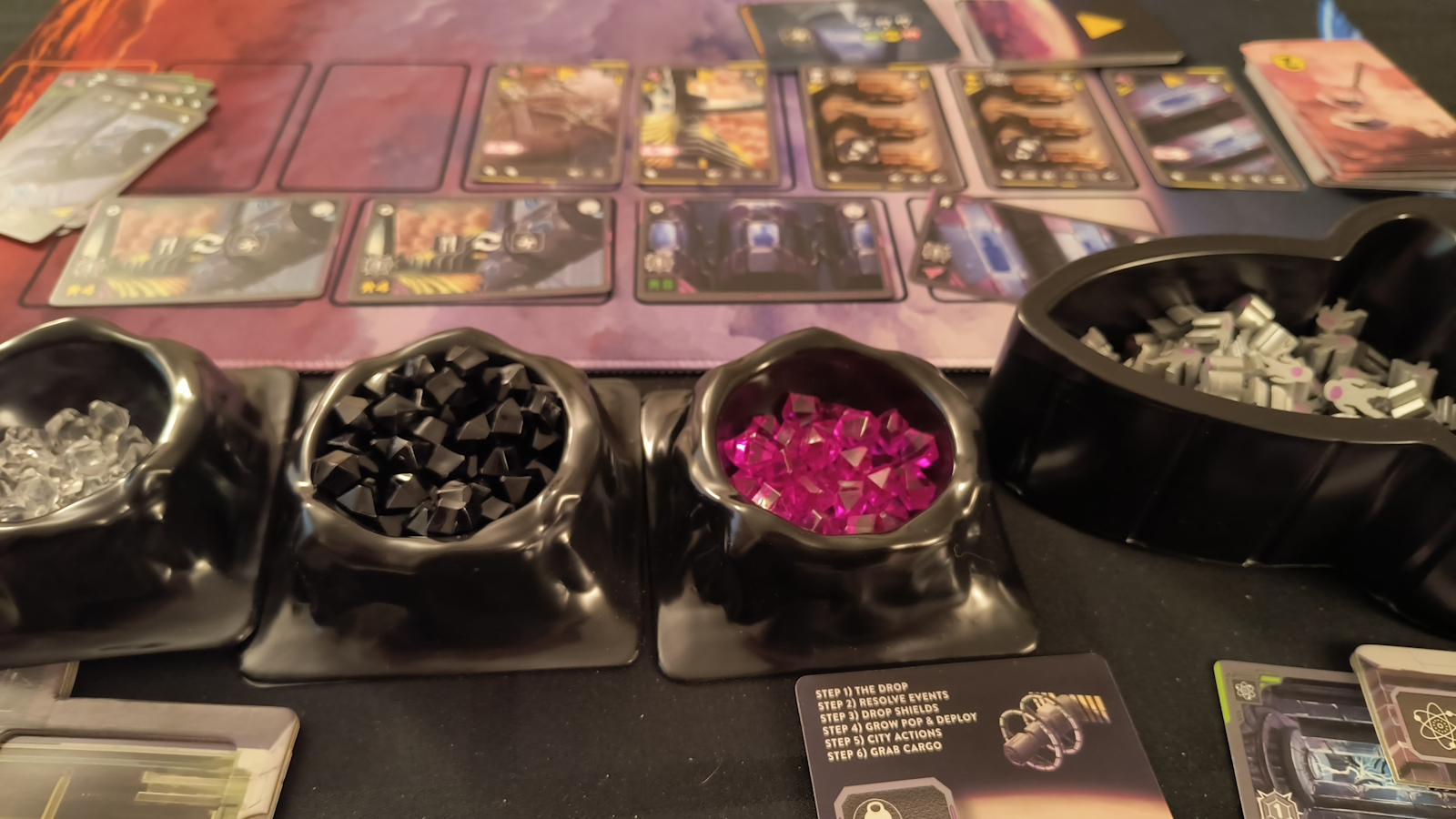
Humanity has left Earth and chose one of the most inhospitable planets in the solar system to start a new life on, Venus. However, while the surface of the planet is an acidic, fiery soup, the skies above the clouds of Venus are less dangerous, which is why Cities of Venus takes place in those skies.
Cities of Venus is a game about building up a nascent colony above the Venusian clouds, spending resources to grab colony canisters that have been sent from Earth, and trying to survive the hostile world that you’ve chosen to live on. Each round, players will deal with events, grab dropping canisters, and allocate workers around their city to keep it running.
Most of the game plays simultaneously, so each round moves pretty darn quick. Each round starts with surveying incoming canisters, which is done by placing out a bunch of canister cards. These will be available at the end of the round, so keep their activation costs in mind. If any of the canisters have an event attached, players will have to deal with those first. Events usually involve sacrificing workers in specific departments due to emergencies, but an occasional “friendly” event shows up as well. Then each player has to deal with the acid of Venus by sacrificing a meeple that’s stationed in the Shields department of the city, representing the ongoing human cost of keeping the caustic atmosphere out.
Finally, players get to work on improving their situation. They get a number of additional meeples equal to the lower of the number of meeples between both the food department, and the air and water department. These guys can be sent anywhere, whether it’s the Mechanical, Energy, Food, Air/water, mining, shields, or to research in space (though only 2 can go there at a time). However, this is the primary way players will get workers, so they should be very careful with how they divide these up, and keep their food, air, and water as high as possible. Players can also send a worker down to the surface for a one-way mining trip. The yields can vary with a die deciding how many minerals you bring back, but minerals are used to open many of the canisters. Players can also choose to buy more workers with minerals, though it’s not very efficient to do so.
The last thing players do each round is choose from the incoming canisters. Each one offers a major benefit, usually in the form of an upgrade to a department, which is slid into the thick, 4-layer city board, or a bunch of specific workers who are getting a rude awakening from cryosleep. Any canister that a city doesn’t grab is lost to the surface below. Look, you can’t save everyone, right?
This is actually a theme of the game. You are constantly asked to spend people like money in this game. It costs three people to grab and open that pod, and if you do, it upgrades your food so you can produce more people! Minerals are a valuable commodity, so it’s time to sacrifice another person to send their mineral payload back up to the city one more time.
Points are also fairly hard to come by, with the games we played having a max of 30 points, though some players had as low as 10 points. This is because there’s only so many ways to get ahead. More people helps and more minerals too, but a lot of points can come from cards you choose to upgrade your city with. Unfortunately, some of those upgrades are actually downgrades, but they earn you more points. It’s up to you to balance the cost to how your city plays versus getting actual points.
The prototype version I received was quite well put together. There are plenty of resources, both meeple and mineral, and enough cards to give me a good idea of what the game would look like in the final product. I definitely look forward to what the Kickstarted release looks like. It looks like it’s going to include some goodies I didn’t get in my copy, like a Solo Mode (which this game seems particularly well suited for), some mining mechs that will act as reminders that someone has to pilot that mech, and a ton more cards to make sure each game is unique. If you’re interested, you can submit late-pledges at their Kickstarter page to get your hands on it as soon as it’s available.
